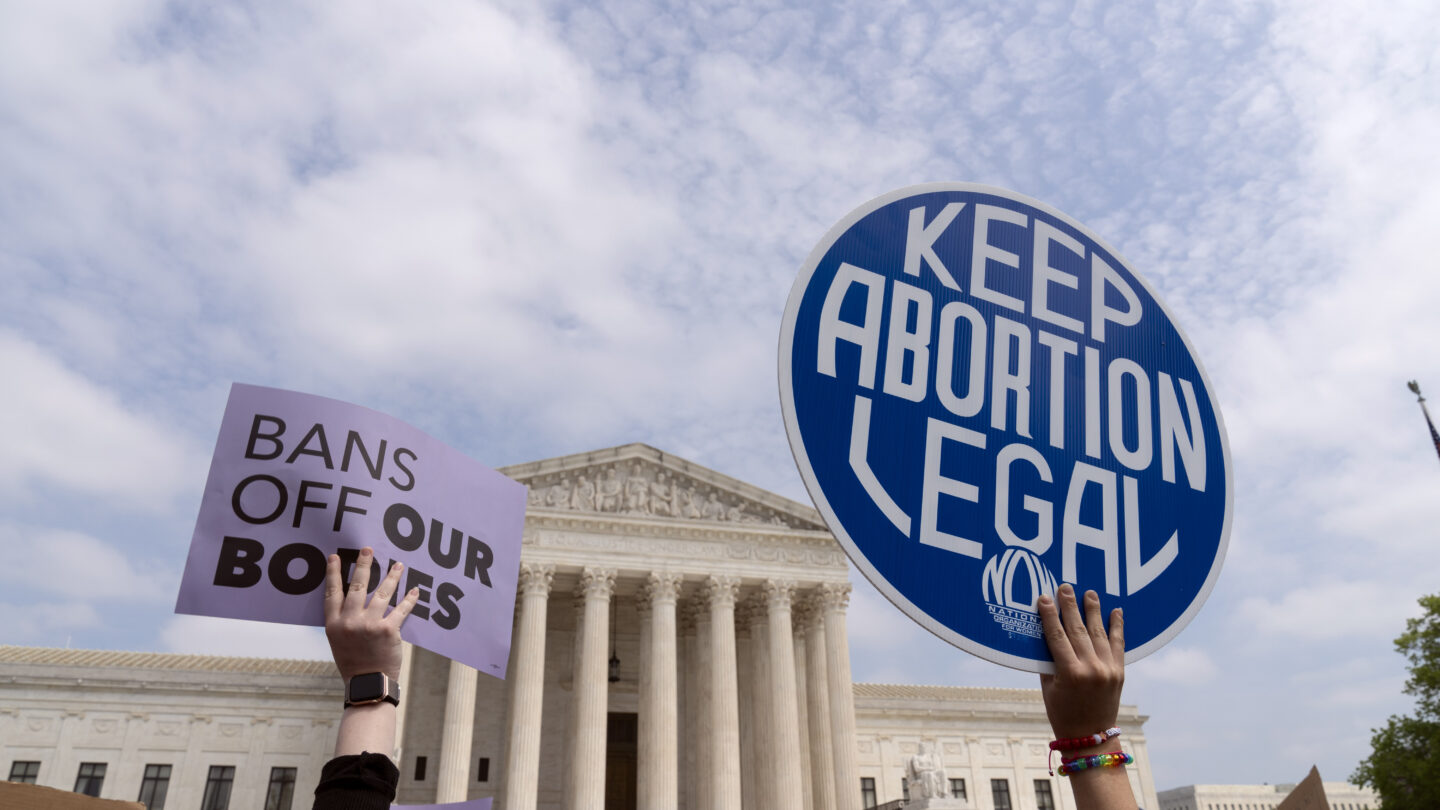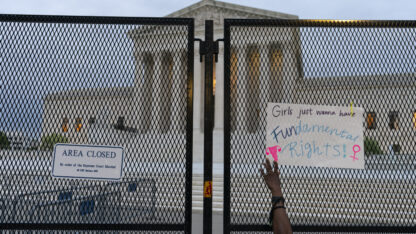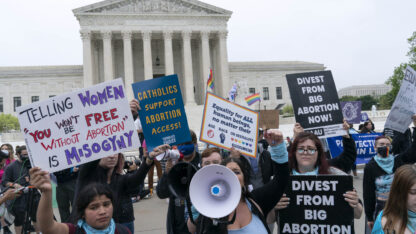Atlanta pro-choice groups are organizing to get the word out that abortion remains legal and available in Georgia — for now. They say the leaked Supreme Court draft opinion only intensifies what was already a pitched battle this year over access to reproductive care in the state.
WABE health reporter Jess Mador checked in with some abortion-rights activists.
When she heard about the Supreme Court leak, Monica Simpson says everything got quiet.
“It’s like I had this moment where I held my breath for a second, but then I also just exhaled because we knew that this was coming.”
Simpson leads the SisterSong Women of Color Reproductive Justice Collective. The group advocates for reproductive freedom and comprehensive health care.
Her group is also one of the plaintiffs in a lawsuit challenging Georgia’s law seeking to ban abortion at as early as six weeks. (Read the complaint at the American Civil Liberties Union website.)
The law is on hold awaiting an official decision at the Supreme Court on the Mississippi abortion case — the case at the center of the high court’s opinion leaked Monday night.
But Simpson says if Georgia’s law ultimately goes into effect, it’ll hurt people at lower incomes, in rural areas and people of color the most — people who can’t easily afford to hop on a plane and travel out of state.
The population is also at high risk for maternal mortality.
“In Georgia and so many other Southern states, we are battling a maternal mortality crisis. We have a lack of access to sexual education and comprehensive health care, so we’re not even set up in a way that really creates an environment for people to thrive in their reproductive decision-making as it stands,” Simpson says.
“And so now we’re adding another layer, another obstacle for folks to be able to make their own decisions about their bodies and their reproductive futures. It’s insane,” she says.
And now, in Georgia, with abortion still legal, many women are already forced to travel long distances for an abortion.
Almost all of the state’s 15 abortion clinics are located in Atlanta.
Allison Coffman is director of a coalition that represents seven reproductive rights groups working to protect abortion access in the state.
She says the coalition is prepared to pay out more money from its abortion fund if Roe v. Wade is overturned.
“No matter what the laws are here in Georgia, if folks need to travel, if folks need childcare, any support that folks need in addition to funding their abortion care, it is the abortion funds that will be providing those services,” Coffman says. “These are mututal aid organizations and they’re powered by the local community.”
The average cost for a first-trimester abortion is around $500.
Last year, the Access Reproductive Care-Southeast fund helped pay for more than 6,100 abortions across the South, most for women who already have at least one child at home and say they can’t afford more kids.
The United States Supreme Court has heard oral arguments on the constitutionality of Mississippi’s 15-week abortion ban. A decision on the case is expected soon.
Until then, Georgia pro-choice advocates say they’ll continue working to expand access to abortion. That includes access to medication abortion, which already accounts for more than half of all abortions in the U.S.









